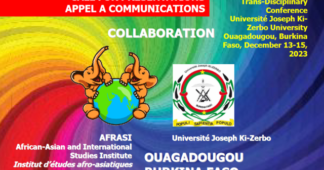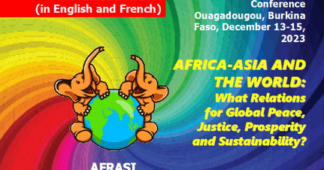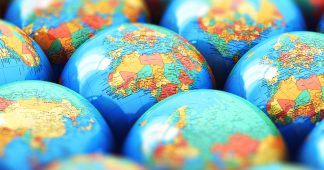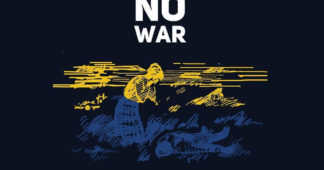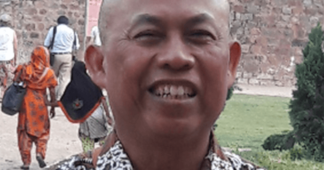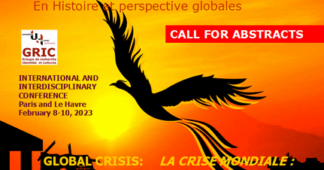The World Social Forum in Kathmandu, Nepal, revealed common goals, but also, deeply rooted differences.
by Leo Gabriel*
When the World Social Forum, which had started in Porto Alegre, Brazil, in 2001, came to an end on February 19th, 2024, many of the 15,000 participants were relieved: some because the more than 400 events held over five days gave them the impression that they were not alone in their difficult living situation in South Asia, and others because the numerous activists saw their belief confirmed that “another world is possible”.
The cultural and political environment of Nepal
In general, the belief in the supernatural seems to be the basis of political thinking in Nepal. At every turn on the streets of Kathmandu, one encounters images of the laughing Buddha or the multi-armed Shiva, whereby over the centuries (in contrast to India) a tolerant syncretism has replaced religious fundamentalisms and agnosticisms. In contrast to the People’s Republic of China, Tibetan monks are recognized by the state here, and so are the casteless Dalits. This was expressed not least in a decade-long constitutional process which ultimately resulted in the abolition of the monarchy and the establishment of a party democracy. In the process, the self-determined Maoists had gained the upper hand because of their co-operation with the many ethnic communities, deeply rooted in history, and still provide the prime minister today.
All of this also played a major role in the organization of the World Social Forum, which was largely dominated by Nepalese organizations and participants from India (around 3,000) and Bangladesh. But also representatives of NGOs from Europe, Africa and Latin America were present, whilst the Nepalese filled the provided tents with hundreds of members of social movements, like the All Nepalese Peasant Confederation, which is part of Via Campesina, as well as the Nepalese trade unions and women’s movements.
Consensus on two global issues: Palestine and climate justice
Nevertheless, two international topics played a key role at the events: solidarity with Palestine and the so-called climate justice, which was confronting the main polluters in the North with the victims in the Global South. It was also thanks to the activists from these two thematic areas that, for the first time in the history of the World Social Forums, it was possible to set priorities for mobilization on a global level at the Assembly of struggles and resistances that took place on the last day. For example, the idea of a global mobilization day for peace and against the genocide in Gaza met with unanimous approval, even though the exact date for such a mobilisation (presumably on 15 May) has yet to be set.
There was also broad agreement on the issue of climate justice, not least because hundreds of thousands of inhabitants of the Himalayas are threatened with extinction by the melting glaciers. “The problem, however, is that most European and North American NGOs want to advance their proposals on the basis of scientific findings without taking into account the interests and experiences of the local population,” explained the renowned sociologist Uddhab Pakurel, one of the first Nepalese promoters of the World Social Forum.
Political tensions between NGOs and social movements.
In general, it was not only the Nepalese organizations that criticized the fact that the NGOs were given a quantitatively and politically important role in the World Social Forum, whilst large movements such as Via Campesina, the International Trade Union Confederation ITUC or the International Peace Bureau (IPB) had only shown up through single representatives. Whilst the former, due to their financial dependencies, display a kind of competitive behavior based on the principle of diversity, the social movements are more interested in strengthening internal unity in order to present a united front to their opponents.
This discussion in the International Council of the World Social Forum, which lasted for years, perhaps even two decades, and which almost led to a break at the last WSF in Mexico in 2022, was overcome at a meeting in Tunis in December 2022, when it was decided to establish an “Assembly of Struggles and Resistances” within the WSF. This assembly can now adopt political declarations and action plans in its own name, a fact which the WSF as such was prevented from doing so by the Porto Alegre Charter, the WSF’s founding document.
Declaration and action plan of the social movements: another world becomes real
In Kathmandu it was the first time that such an assembly took place, whose statutes forsees the possibility of a qualified majority of 80% and can decide on joint global actions. This spirit of Convergence was also reflected by four panel discussions organized by the International Council on the topics of PEACE, CLIMATE JUSTICE, DEMOGRACY and GENDER JUSTICE. This made it possible to drive forward a discussion which ultimately led to the adoption of a joint final document as the basis for a joint action plan. The problem was that at the same time the final Assembly for struggles and resistances took place there were also meetings on singular issues, so that only a relatively small number of organizations could be present and the enormous time difference between Nepal, Europe and Latin America made it virtually impossible for those who stayed at home to participate virtually in the Assembly.
Whether Kathmandu succeeded in achieving the major breakthrough or, as the Brazilian media claim, the “revival” of the World Social Forum, remains to be seen. For the renewal of the WSF is a process in which the outcome largely depends on the realization of the different political projects.
* Journalist and social anthropologist, peace activist, member of the International Council of the World Social Forum since 2001
We remind our readers that publication of articles on our site does not mean that we agree with what is written. Our policy is to publish anything which we consider of interest, so as to assist our readers in forming their opinions. Sometimes we even publish articles with which we totally disagree, since we believe it is important for our readers to be informed on as wide a spectrum of views as possible.
